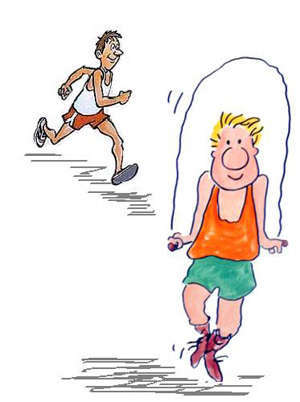
Introduction:
Type II Diabetes is also known as Non-Insulin Dependent Diabetes Mellitus (NIDDM) or Adult-onset Diabetes. Diabetes mellitus is a syndrome (= set of symptoms) characterized by increased level of sugar (glucose) in the blood due to deficiency or inactivity of hormone ‘Insulin’ that is absolutely necessary to monitor glucose metabolism of body. This is a metabolic disorder that is primarily characterized by insulin resistance, relative insulin deficiency and consecutively hyperglycemia. Diabetes is prevalent worldwide and if not attended properly, it may lead to serious complications.
Causes of Diabetes 2:
NIDDM basically occurs due to defective insulin secretion combined with defective responsiveness of the body to the insulin (also called Insulin resistance). Due to both these factors, hyperglycemia starts occurring in the body. NIDDM is strongly associated with obesity and with increasing age. A strong in heritance pattern has been noted in cases of type 2 diabetes. Sedentary lifestyle, pregnancy, hypertension, cardiovascular diseases, etc pose as risk factors for developing Diabetes.
heritance pattern has been noted in cases of type 2 diabetes. Sedentary lifestyle, pregnancy, hypertension, cardiovascular diseases, etc pose as risk factors for developing Diabetes.
Type 2 diabetes can begin at any age though it is not very common in childhood. It usually begins with insulin resistance, a condition in which the body does not use insulin properly. At first, the pancreas keeps up with the added demand by producing more insulin but later it loses the ability to secrete enough insulin in response to meals. This ultimately results in Hyperglycemia (high levels of glucose in circulation).
Homeopathic Treatment for Diabetes 2:
Type II Diabetes is a constitutional disorder as it is an offshoot of constitutional defects (genetic factors, altered immunity) having an impact on the entire constitution of an individual. Hence it calls for an in-depth constitutional approach for its management.
Homeopathy is based on the principle that disease is a total affliction of body. Moreover homeopathy recognizes importance of the underlying causes such as genetic and inherited factors as the root of any ailment of the body. Homeopathic medicines prescribed on such criteria plays a crucial role in  management of many deep-rooted, chronic, difficult diseases; one amongst them being Diabetes.
management of many deep-rooted, chronic, difficult diseases; one amongst them being Diabetes.
When we talk about diseases like diabetes, we talk in terms of management rather than cure. Homeopathic treatment along with intake of hypoglycemic drugs and/or insulin can prevent the progress and the complications associated with this condition. Moreover timely administered homeopathic medicines help in maintaining the levels of exogenous insulin and hypoglycemic drugs at minimum possible dosage and in preventing the further progress of the disease. However, it may be noted that there is no substitute to insulin in homeopathy. The role of a healthy diet and exercise cannot be underestimated along with all the above treatment measures.
Click here for Diabetes Type I (Insulin dependent diabetes)
Written & Approved by-
Dr. Rajesh Shah
M.D. (Hom.)